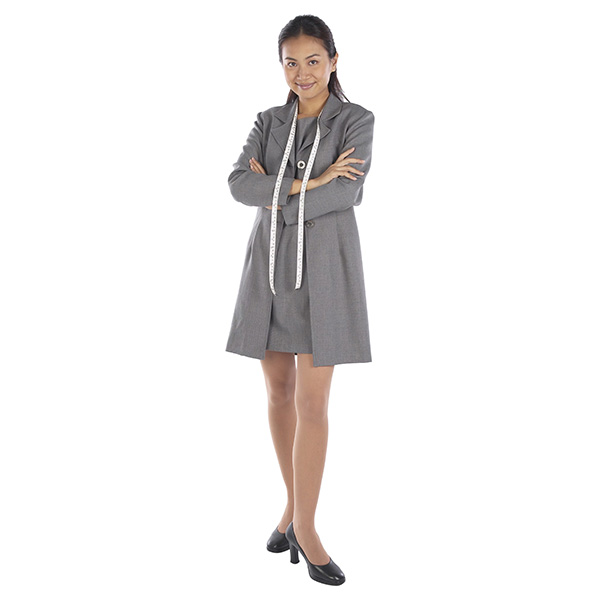Costume Designer
A costume designer is a person who designs costumes for a stage or film production. They seek to enhance a character’s personality while at the same time using specific garments and accessories to change the time period of the production or social status of the character. They work with the director and designer, and collaborate with makeup artists and hair stylists. A costume designer must be very artistically capable and have a strong knowledge of textiles, pattern development and fashion history.
Education
 While no formal education is required to become a costume designer, taking a Bachelor’s degree program in costume design can help you acquire the necessary skills and knowledge required to work in this field. Colleges and universities also offer the opportunity for you to create costumes for school productions, providing significant experience. The Theatre School at DePaul University (https://theatre.depaul.edu/conservatory/undergraduate/costume-design/Pages/default.aspx) offers a four year program which involves both classroom and production work. There is also a theatre costume design school in Los Angeles (https://fidm.edu/en/Majors/Theatre+Costume+Design/). You can also watch films and attend plays and make observations on the characters’ costumes. For example, watch Romeo and Juliet to see how the costumer designer distinguishes between the Montagues and the Capulets. You will also want to make connections in the industry by interning at a regional theatre. An internship gives you the chance to learn under the supervision of a professional costume designer. Once you feel comfortable with your costume design skills, select a piece of literature you enjoy (preferably one that hasn’t been adapted into a play or film yet) and make a list of every character. Start making costume ideas for every character and begin drawing them or making a collage. This will help you start a portfolio, which is necessary when you are applying for a job.
While no formal education is required to become a costume designer, taking a Bachelor’s degree program in costume design can help you acquire the necessary skills and knowledge required to work in this field. Colleges and universities also offer the opportunity for you to create costumes for school productions, providing significant experience. The Theatre School at DePaul University (https://theatre.depaul.edu/conservatory/undergraduate/costume-design/Pages/default.aspx) offers a four year program which involves both classroom and production work. There is also a theatre costume design school in Los Angeles (https://fidm.edu/en/Majors/Theatre+Costume+Design/). You can also watch films and attend plays and make observations on the characters’ costumes. For example, watch Romeo and Juliet to see how the costumer designer distinguishes between the Montagues and the Capulets. You will also want to make connections in the industry by interning at a regional theatre. An internship gives you the chance to learn under the supervision of a professional costume designer. Once you feel comfortable with your costume design skills, select a piece of literature you enjoy (preferably one that hasn’t been adapted into a play or film yet) and make a list of every character. Start making costume ideas for every character and begin drawing them or making a collage. This will help you start a portfolio, which is necessary when you are applying for a job.
Job Description
 A costume designer begins by reading the script of the play or film, and learns each character’s personality and characteristics. This may include outside research and background information if the script is an adaptation. If the production is set in a different time period, they need to research the style of clothing worn in that era. It is important to consult with the director at the same time to understand their interpretation as well. Costume designers are responsible for creating costumes for every single character in the production, even if they do not have speaking roles or only appear for one scene. For films, this includes all background actors who may only have 3 seconds of screen time. They draw the initial design sketches. Once they are approved by the director, the costumer designer draws the final designs, which illustrates other details such as jewellery, masks and shoes. They also must manage to stay within the production’s costume budget.
A costume designer begins by reading the script of the play or film, and learns each character’s personality and characteristics. This may include outside research and background information if the script is an adaptation. If the production is set in a different time period, they need to research the style of clothing worn in that era. It is important to consult with the director at the same time to understand their interpretation as well. Costume designers are responsible for creating costumes for every single character in the production, even if they do not have speaking roles or only appear for one scene. For films, this includes all background actors who may only have 3 seconds of screen time. They draw the initial design sketches. Once they are approved by the director, the costumer designer draws the final designs, which illustrates other details such as jewellery, masks and shoes. They also must manage to stay within the production’s costume budget.
Pros & Cons
A career in costume design allows you to be extremely creative. You get to interpret the script and characters in your own way, and use this interpretation as a basis for your costume design. It is a major part of any production. Fantastic costumes can have a significant impact on the audience and leave a lasting impression. Costume design offers the opportunity for self-employment. As a costume designer, you can freelance, and choose the jobs you want while taking as much time off between jobs as you desire. You can also enter the industry with just a high school diploma, although having a Bachelor’s degree is preferred. However there are some negatives. The starting salary is usually relatively low, and you may have to work nights and weekends. You typically have a hard deadline, and can experience unforeseen setbacks that can be very stressful. You may have to work with difficult directors or people who criticize your work and make you redo your sketches or even start over. There also isn’t expected to be an increase in the number of costume designers hired in the near future.

